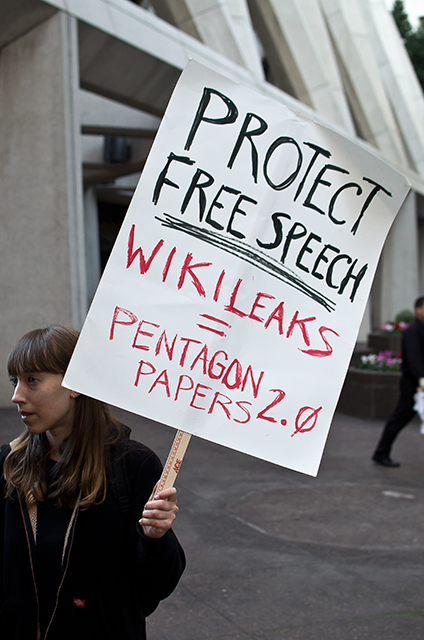It is often said that truth is the first casualty of war. In times of war and mass conceit, independent journalists have cut their teeth exposing the lies perpetrated by the government and the mainstream media. “Political language,” George Orwell once wrote, “is designed to make lies sound truthful and murder respectable, and to give an appearance to solidity to pure wind.” With the growing rise of the national security state and endless war in the Middle East, Americans must all look to the legacy of Daniel Ellsberg and compare the historical significance of the Pentagon Papers to current times.
Revealing corruption
In 1971, Daniel Ellsberg released the Pentagon Papers to the New York Times — a 4,000 page document containing the history of the US’ role in Indochina from War World II to 1968— where its contents were later published on the front page of the newspaper. Because of Ellsberg, the Times was able to show the public the Johnson administration “systematically lied, not only to the public but also to Congress” about an unpopular war that was already stirring a culture of protest and discontent at home. Ellsberg later became one of the nation’s most vehement anti-war activists and critics of the Vietnam War — a conflict that killed over 58,000 US servicemen and at least 2 million Vietnamese. It was much later when the Nixon administration was caught expanding the Vietnam War by secretly conducting bombing raids in Cambodia and Laos.
So, why is this tidbit of history relevant today? Ellsberg is important because, like the Vietnam War, most Americans do not have a favorable view of the current wars in the Middle East and many people are unaware of the utter chaos and destruction created by the War on Terror.
Dana Priest writes about the Pentagon Papers in an article published by the Columbia Journalism Review. According to Priest, “Ellsberg had become a human thumb drive, passing out copies of the original document to still more publications with the same strategic sensibility as Snowden would display four decades later.”
Whistleblowers such as Edward Snowden, Chelsea Manning and Julian Assange are today’s Daniel Ellsberg. These individuals brought into the light the surveillance architecture and national security state secretly being built in our country. “The government is applying ever more strident measures to stop national security reporters from doing our jobs. Individuals are shamed as traitors. Lives are crushed so the government can send a message,” writes Priest.
Ellsberg’s legacy lives on
And yet Snowden is condemned as a traitor, and the people who defend him are considered “anti-American.” This is ridiculous. Snowden did a service to American democracy and he should be welcomed home with open arms.
The last decade has been an open season for journalists and whistleblowers. Whistleblower Thomas Drake’s life was ruined by the NSA 10 years before Snowden. Reporters such as James Risen was badgered by U.S. courts for several years in an attempt to reveal the confidential sources behind his reports on secret CIA and NSA programs.
Both journalists and whistleblowers continue to expose the lies all governments naturally perpetuate in times of war. Late last year, the staff at the Intercept published “The Drone Papers” — eight articles based on “a cache of secret documents detailing the inner workings of the U.S. military’s assassination program in Afghanistan, Yemen, and Somalia.”
Ellsberg’s legacy lives on, and journalists continue to bring the secrets into the light.







